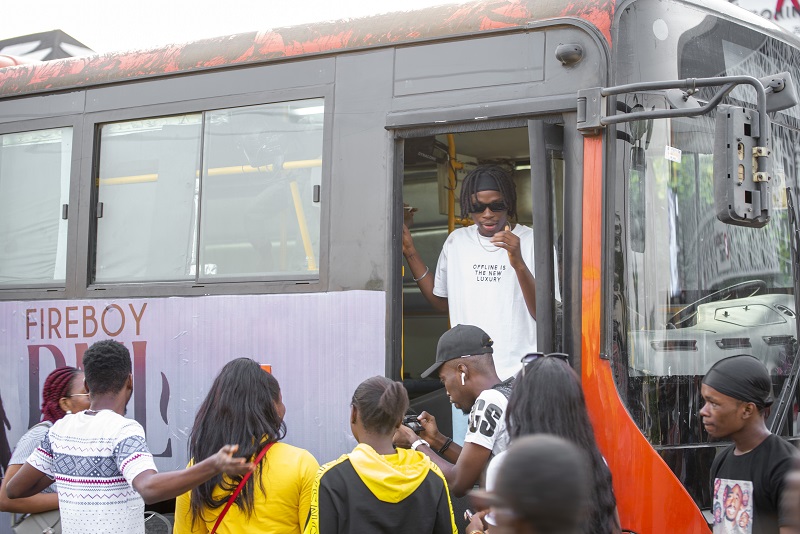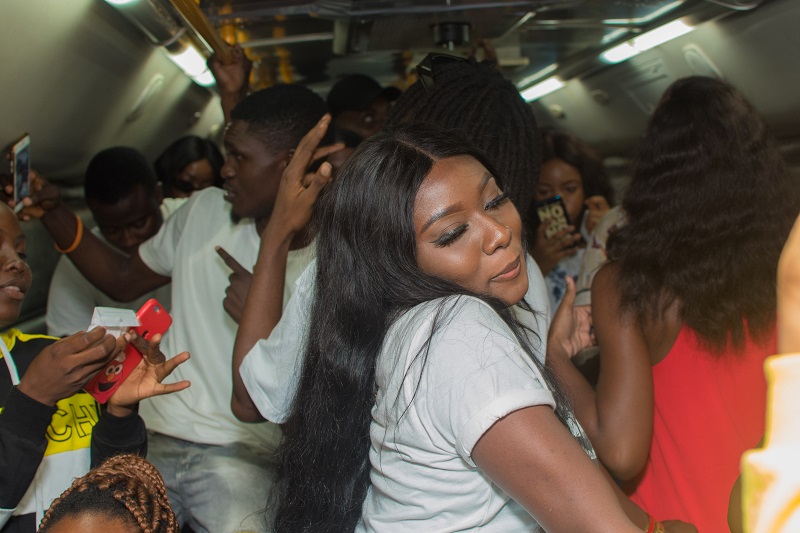Coming off the success of the release of his debut album, Laughter, Tears and Goosebumps, Fireboy DML took time out to appreciate his loyal fans at a private rendezvous hosted by Hypeman Tolu Daniels and actor Yhemo Lee.
Dressed in a white slogan Tee that read “Offline is the new luxury”, a turquoise blue Givenchy short and a pair of white sneakers, this apparently was a very exclusive opportunity that his team had put together for fans to come and meet Fireboy, have tete a tetes, share hugs, Karaokes and more.
The rendezvous which started with every Firecityzen as Fireboy loves to call his fans introducing themselves to the biggest kid in the block Fireboy DML peaked when the Fireboy party bus pulled up, this small and intimate room erupted with applause as everyone couldn’t wait to get on the bus that had everyone on a mini-tour on Lagos Island.
At the arrival of the bus, he thanked everyone for coming out to meet with him and for being patient with him as they anticipated the arrival of the bus.
The night which was put together by Estol Africa ended with performances by Fireboy DML leaving fans and onlookers with an experience to cherish and remember.
For more information about Fireboy DML, visit www.fireboydml.com
Keep up with Fireboy across social media platforms @fireboydml
The post Fireboy DML Treats Fans To An Exciting Bus Party Experience appeared first on Latest Naija Nigerian Music, Songs & Video - Notjustok.
from Latest Naija Nigerian Music, Songs & Video – Notjustok
via EDUPEDIA



Comments
Post a Comment